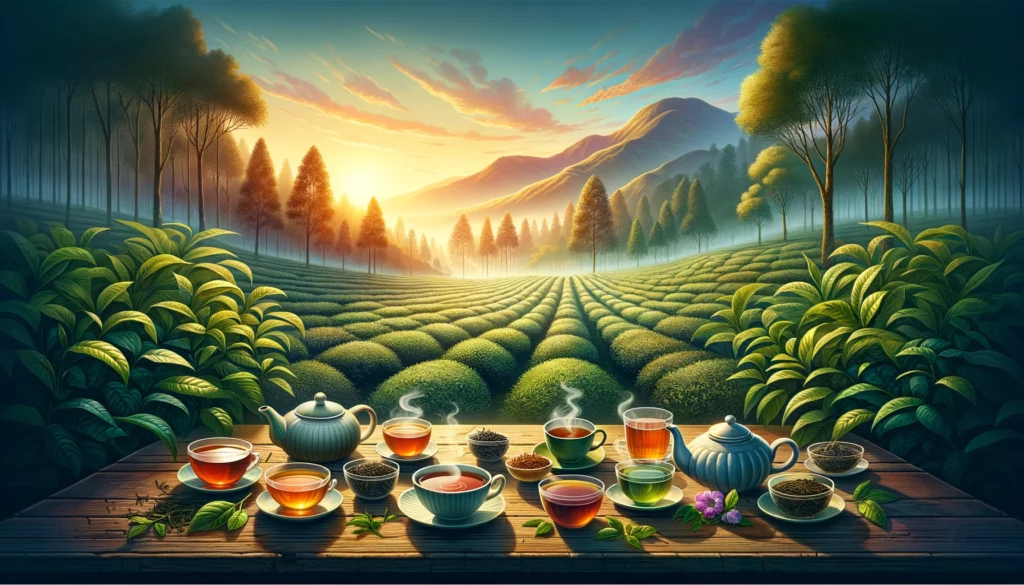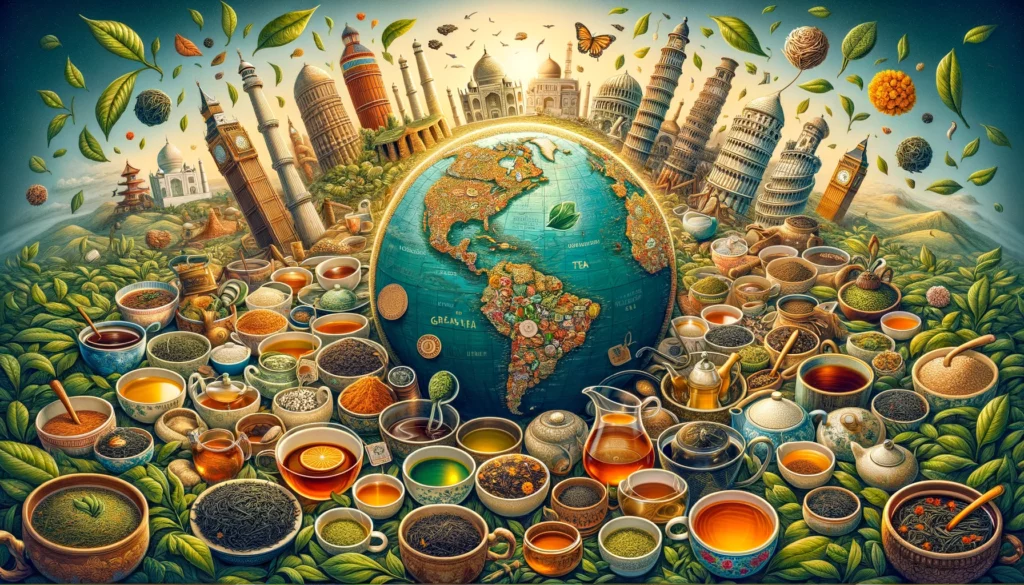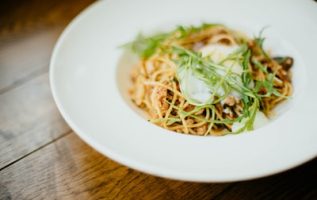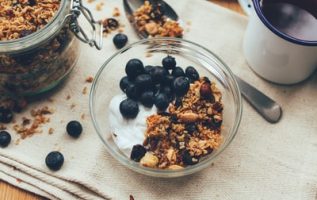Dive into Flavors, Health, and Brewing Techniques
Tea, a beverage savored globally, offers an intricate tapestry of flavors, health benefits, and cultural practices. From Darjeeling’s rolling hills to London’s bustling streets, tea is essential to daily rituals and ceremonies.
This detailed exploration comprehensively examines the most beloved teas, their distinct characteristics, their myriad health advantages, and expert tips for crafting the perfect brew.

Most Popular Teas Around the Globe
The variety of teas available worldwide is vast, each with its unique taste and tradition. Below is a table highlighting some of the most cherished teas, their origins, and flavor notes:
| Tea Variety | Origin | Flavor Description |
|---|---|---|
| Darjeeling Tea | Darjeeling, India | Delicate, floral, and musky, with a golden hue |
| Chai | South Asia | Spicy, rich, and milky, with a blend of aromatic spices |
| English Breakfast | Assam, Ceylon, Kenya | Robust, full-bodied, ideal with milk and sugar |
| Earl Grey | England | Citrus-flavored, with a distinct bergamot oil aroma |
| Green Tea | China, Japan | Light, refreshing, with a slightly grassy undertone |
These teas represent just a fraction of the options available to tea enthusiasts, each offering a unique window into the cultures and traditions from which they originate.
Types of Tea and Their Flavors
Tea can be categorized into true teas, derived from the Camellia sinensis plant, and herbal teas, encompassing a wide range of dried fruits, flowers, spices, or herbs. The table below outlines the various types of tea and their characteristic flavors:
| Type of Tea | Description | Flavor Profile |
|---|---|---|
| Black Tea | Fully oxidized, robust | Malty, with notes of honey and spice |
| Green Tea | Minimally oxidized, lighter | Grassy, vegetal, sometimes nutty or oceanic |
| White Tea | Least processed, delicate | Floral, sweet, slightly creamy |
| Oolong Tea | Semi-oxidized, diverse | Ranges from floral and fruity to toasty |
| Pu-erh Tea | Fermented, rich | Earthy, mellow, with a depth of flavor |
Herbal teas, or tisanes, offer a caffeine-free alternative with various flavors, from the mild and floral Chamomile to the tart and tangy Hibiscus.

The Health Benefits of Tea
Both true and herbal teas are lauded for their health benefits, largely attributed to their antioxidant properties. The following table summarizes the key health benefits associated with different types of tea:
| Tea Type | Health Benefits |
|---|---|
| Green Tea | Rich in antioxidants, aids in weight loss, improves heart health |
| Black Tea | Antioxidant-rich may reduce blood pressure, support digestion |
| Herbal Tea | Offers various benefits depending on the herb (e.g., Chamomile for sleep, Ginger for digestion) |
| Decaffeinated Tea | Provides the benefits of tea without the caffeine, suitable for those sensitive to caffeine |
It’s important to note that while tea can contribute to a healthy lifestyle, it should not replace medical treatments.
Brewing the Perfect Cup: Tips and Techniques
The art of tea brewing is as important as the tea itself. Proper technique can enhance the flavor and health benefits. Here are some general guidelines for brewing tea:
Ideal Water Temperatures and Steeping Times
| Tea Type | Water Temperature | Steeping Time |
|---|---|---|
| Black Tea | 212°F (100°C) | 3-5 minutes |
| Green Tea | 175-180°F (80-82°C) | 1-3 minutes |
| White Tea | 175-180°F (80-82°C) | 2-3 minutes |
| Oolong Tea | 195°F (90°C) | 2-3 minutes |
| Herbal Tea | 212°F (100°C) | 5+ minutes |
Adhering to these temperatures and times is crucial for extracting the full flavor and benefits of the tea without introducing bitterness.
Common Mistakes in Tea Brewing
Avoiding common brewing errors is key to enjoying the perfect cup. Here are some mistakes to steer clear of:
- Incorrect Water Temperature: Too hot can burn the tea; too cool can lead to under-extraction.
- Over-Steeping: This can make the tea bitter and overpowering.
- Poor Quality Water: Chlorinated tap water can affect taste. Use filtered or spring water instead.
Conclusion
Tea, in its essence, is more than just a beverage—it’s a journey into a world of nuanced flavors, healthful benefits, and cultural heritage.
Whether you’re a seasoned tea fan or new to the tea scene, understanding teas’ diversity, preparation, and benefits can transform your tea-drinking experience.
By embracing the art and science of tea brewing, you can unlock the full potential of this ancient elixir, one cup at a time.
Citations:
- https://erudus.com/editorial/the-food-agenda/most-famous-teas
- https://www.bigelowtea.com/collections/most-popular
- https://www.eater.com/2015/3/18/8242563/these-are-the-worlds-five-most-popular-types-of-tea
- https://www.reddit.com/r/tea/comments/1aofhnj/most_popular_tea_to_offer/
- https://www.zestaceylontea.com/blog/tea-benefits/the-5-most-famous-teas-in-the-world/








